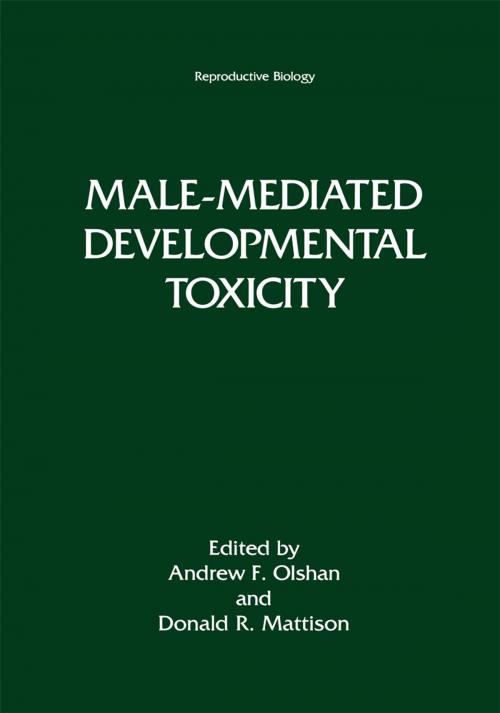Male-Mediated Developmental Toxicity
Nonfiction, Health & Well Being, Medical, Medical Science, Pharmacology, Science & Nature, Science, Biological Sciences| Author: | ISBN: | 9781461518778 | |
| Publisher: | Springer US | Publication: | December 6, 2012 |
| Imprint: | Springer | Language: | English |
| Author: | |
| ISBN: | 9781461518778 |
| Publisher: | Springer US |
| Publication: | December 6, 2012 |
| Imprint: | Springer |
| Language: | English |
The cause of many of the adverse reproductive outcomes and developmental diseases among offspring is not well understood. Most of the epidemiologic and experimental animal research has focused on the relationship between maternal exposures including medications, tobacco smoke, alcohol, infections, and occupation and the occurrence of spontaneous abortion, low birth weight, and birth defects. The potential role of paternal exposures has not been investigated as extensively despite long-standing animal research that demonstrates the induction of mutations in the male germ cell after exposure to certain agents and subsequent reproductive failure or early pregnancy loss. Given this relative lack of interest, acquisition of epidemiologic data and the development of a definitive model or mechanism for potential male-mediated effects has been hindered. However, recent laboratory and epidemiologic investigations have suggested that paternal exposures may be more important than previously suspected. This topic has been termed by some as "male-mediated developmental toxicity. " This is meant to refer to the effects of exposures and other factors relating to the male parent that result in toxicity to the conceptus and abnormal development. The developmental endpoints of interest can include fetal loss, congenital abnormalities, growth retardation, cancer, and neurobehavioral effects. These effects may operate through a variety of mechanisms including gene mutation, chromosomal aberrations, seminal fluid transfer of toxicants and epigenetic events.
The cause of many of the adverse reproductive outcomes and developmental diseases among offspring is not well understood. Most of the epidemiologic and experimental animal research has focused on the relationship between maternal exposures including medications, tobacco smoke, alcohol, infections, and occupation and the occurrence of spontaneous abortion, low birth weight, and birth defects. The potential role of paternal exposures has not been investigated as extensively despite long-standing animal research that demonstrates the induction of mutations in the male germ cell after exposure to certain agents and subsequent reproductive failure or early pregnancy loss. Given this relative lack of interest, acquisition of epidemiologic data and the development of a definitive model or mechanism for potential male-mediated effects has been hindered. However, recent laboratory and epidemiologic investigations have suggested that paternal exposures may be more important than previously suspected. This topic has been termed by some as "male-mediated developmental toxicity. " This is meant to refer to the effects of exposures and other factors relating to the male parent that result in toxicity to the conceptus and abnormal development. The developmental endpoints of interest can include fetal loss, congenital abnormalities, growth retardation, cancer, and neurobehavioral effects. These effects may operate through a variety of mechanisms including gene mutation, chromosomal aberrations, seminal fluid transfer of toxicants and epigenetic events.















